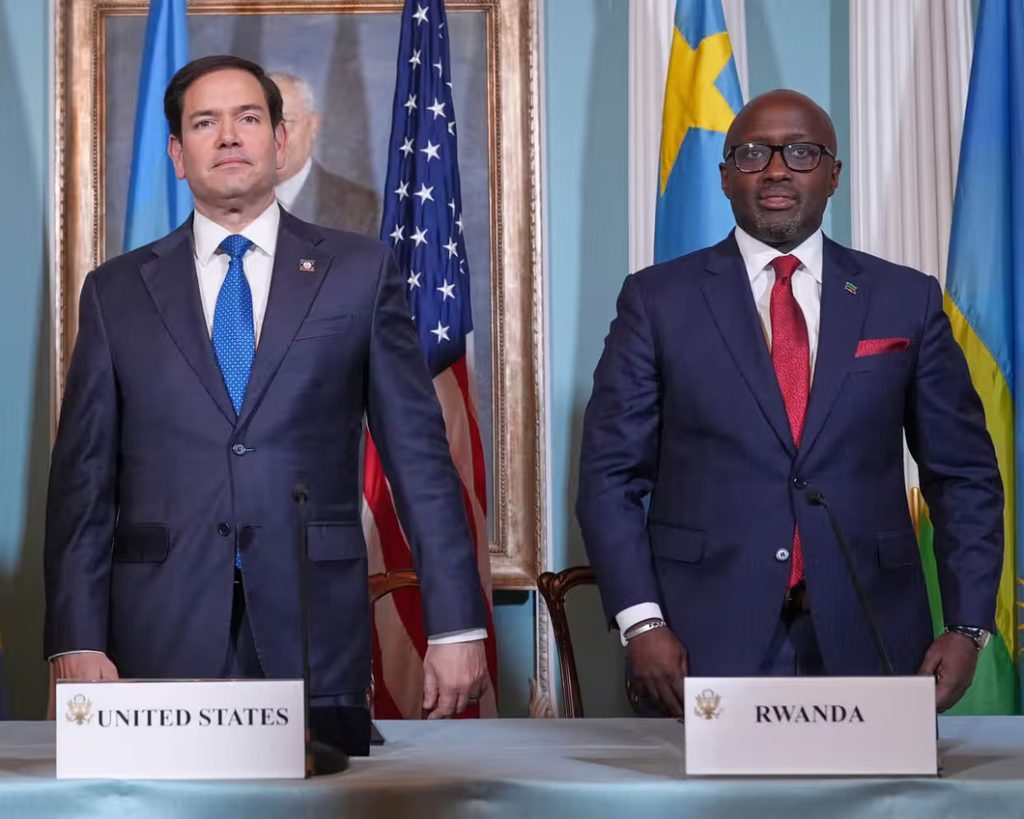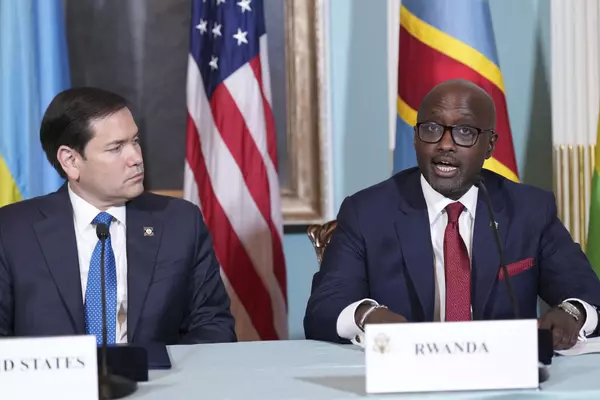US talks are an opportunity for Rwanda to boost its geopolitical reach
Rwanda’s latest discussions with the United States over hosting deported migrants mark another step in its strategy to present itself as a cooperative partner in the anti-immigration efforts of Western allies.
While similar attempts with the UK, Israel, and Denmark have previously drawn headlines, they ultimately faltered under political and legal pressure.
On Sunday, Rwandan Foreign Minister Olivier Nduhungirehe confirmed the early-stage talks with Washington. Speaking on state television, he said, “Those reports are true. We are engaged in discussions with the government of the United States of America.”
Initial details emerged last month through the US-based Handbasket newsletter, which cited a State Department cable noting that Rwanda had agreed in principle to receive migrants who cannot be returned to their home countries due to risk of persecution. Though specifics remain unclear, it reflects a continuation of Rwanda’s efforts to serve as a relocation destination for migrants.

In 2022, Rwanda struck a deal with the UK government to process asylum seekers sent from Britain. The plan would have seen successful applicants remain in Rwanda, while others could choose to leave or apply for residency. The agreement included funding to support relocation and housing, but it faced widespread opposition, legal challenges, and human rights criticism. Though the Rwandan government said the plan addressed illegal migration and supported national development, critics called it unlawful and dangerous for refugees.
The UK eventually dropped the plan after Labour leader Keir Starmer canceled it last year, following his party’s election victory. By then, it had already cost the UK hundreds of millions of pounds.
Referring to Rwanda’s past experience, Nduhungirehe said Sunday that the US proposal “is not something new to us.” Between 2014 and 2017, Rwanda took in African asylum seekers from Israel under a controversial, largely undisclosed agreement. The deal allowed Israel to offer cash payments to deportees or detain them if they refused to leave. In 2017, UNHCR official Volker Türk said about 4,000 migrants from Eritrea and Sudan had been transferred to unnamed countries—reported to be Rwanda and Uganda. That programme ended after Israel’s Supreme Court suspended the deportations in 2018.
Rwanda also explored a migration deal with Denmark after the Danish government passed a 2021 law to process asylum seekers outside Europe. The two countries announced plans to transfer applicants to Rwanda for assessment and resettlement. They called the global asylum system “dysfunctional” and said a new model was needed. The initiative drew criticism for outsourcing refugee protection and was put on hold in 2023 as Denmark sought an EU-wide solution.
Rwandan President Paul Kagame has publicly defended these kinds of partnerships. In 2022, he told state TV: “We are not involved in buying and selling of people, with the UK or anybody. It’s just a problem that needs to be solved and Rwanda is ready to help.”
The current talks with the US give Rwanda another chance to benefit financially from Western migration pressures while strengthening its global standing.
The negotiations also come amid broader US diplomatic efforts to engage both Rwanda and the Democratic Republic of the Congo (DRC) in new bilateral economic agreements. These deals aim to channel Western investment into mining sectors as part of a peace process in eastern DRC—a region where Rwanda faces accusations of supporting armed rebel groups.

